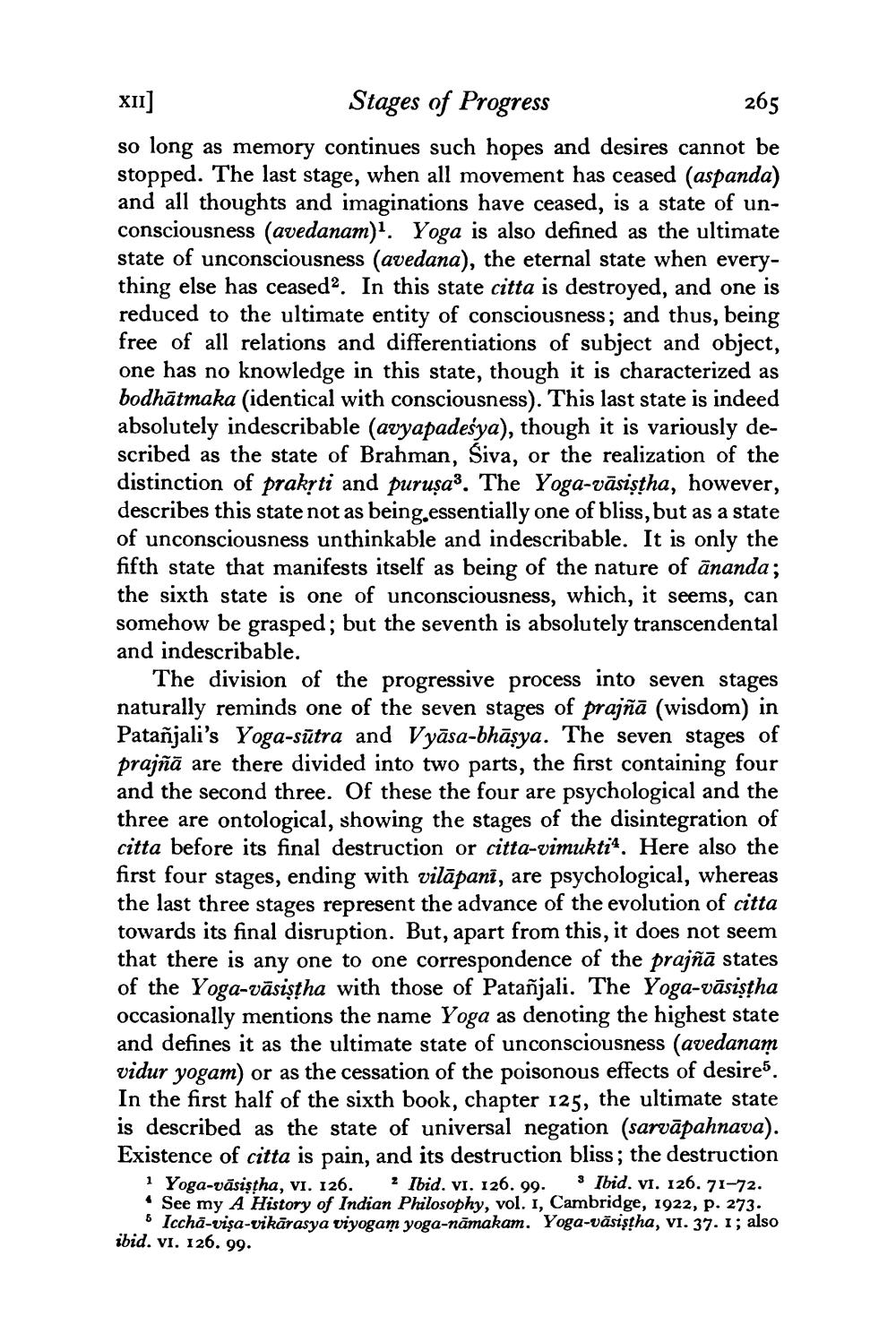________________
XII]
Stages of Progress
265
so long as memory continues such hopes and desires cannot be stopped. The last stage, when all movement has ceased (aspanda) and all thoughts and imaginations have ceased, is a state of unconsciousness (avedanam)1. Yoga is also defined as the ultimate state of unconsciousness (avedana), the eternal state when everything else has ceased2. In this state citta is destroyed, and one is reduced to the ultimate entity of consciousness; and thus, being free of all relations and differentiations of subject and object, one has no knowledge in this state, though it is characterized as bodhātmaka (identical with consciousness). This last state is indeed absolutely indescribable (avyapadesya), though it is variously described as the state of Brahman, Siva, or the realization of the distinction of prakrti and puruşa3. The Yoga-väsiṣṭha, however, describes this state not as being.essentially one of bliss, but as a state of unconsciousness unthinkable and indescribable. It is only the fifth state that manifests itself as being of the nature of ananda; the sixth state is one of unconsciousness, which, it seems, can somehow be grasped; but the seventh is absolutely transcendental and indescribable.
The division of the progressive process into seven stages naturally reminds one of the seven stages of prajñā (wisdom) in Patanjali's Yoga-sūtra and Vyasa-bhāṣya. The seven stages of prajñā are there divided into two parts, the first containing four and the second three. Of these the four are psychological and the three are ontological, showing the stages of the disintegration of citta before its final destruction or citta-vimukti1. Here also the first four stages, ending with vilapani, are psychological, whereas the last three stages represent the advance of the evolution of citta towards its final disruption. But, apart from this, it does not seem that there is any one to one correspondence of the prajñā states of the Yoga-vasiṣṭha with those of Patanjali. The Yoga-vāsiṣṭha occasionally mentions the name Yoga as denoting the highest state and defines it as the ultimate state of unconsciousness (avedanam vidur yogam) or as the cessation of the poisonous effects of desire5. In the first half of the sixth book, chapter 125, the ultimate state is described as the state of universal negation (sarvāpahnava). Existence of citta is pain, and its destruction bliss; the destruction 2 Ibid. VI. 126. 99. 3 Ibid. VI. 126. 71-72. See my A History of Indian Philosophy, vol. 1, Cambridge, 1922, p. 273. 5 Iccha-visa-vikārasya viyogam yoga-namakam. Yoga-väsiṣṭha, VI. 37. I; also ibid. VI. 126. 99.
1 Yoga-väsiṣṭha, VI. 126.




